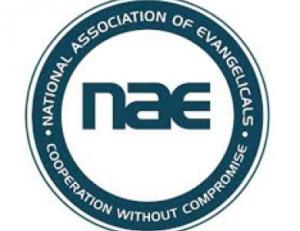What Does “Evangelical” Really Mean?
According to Rachel Maddow and others on MSNBC (an American news outlet), “evangelical” designates a “political faction” and a “voting block.” See on Youtube “What evangelical really means in the Trump era.”
Is this true? I hope not. And I would like to send Maddow and others at MSNBC a message from a leading evangelical influencer—me. I won’t go over my credentials here, now, as you can look them up if you want to. I have laid them out here before.
I have spent much of my life studying and writing about the meaning of “evangelical.”
My first comment to Maddow and others who make such claims is that “evangelical” is a worldwide spiritual and theological identity, not limited to America. She should know that. If nothing else, she and others who say such things should say more correctly what they mean: that white, American evangelical is emerging as a distinctly American political identity but that “evangelical” is not a monolithic identity—political or spiritual-theological.
”Evangelical” is a trans-denominational and apolitical identity that has been hijacked by people who are passionate about a certain kind of politics but may not even attend church or be “born again” in the traditional evangelical sense.
Maddow seems to know that, but she specializes (in my opinion) in sound bytes as do most American news commentators these days.
So what really is “evangelical” as a spiritual-theological identity?
Historians such as George Marsden, Joel Carpenter, Mark Noll and David Bebbington have spent years researching this and have generally agreed on a description of “evangelical” that transcends any denomination, country, or political identity.
Bebbington has created the “Bebbington quadrilateral,” four Christian beliefs that shape evangelical identity wherever it appears; all Christians who believe these things are allegedly “evangelical.” They are: biblicism, conversionism, crucicentrism, and activism. More specifically (and I have had conversations with David, my former colleague about these), evangelicals are Christians who believe that the Bible is God’s inspired and authoritative word, conversion to Christ by grace through faith is the normal way of being saved and becoming part of the church, the body of Christ, Christ’s death on the cross is the only reason anyone can be saved, so evangelicals elevate the cross and Christ’s atoning work there, and Christians should be active in helping people come to know Christ in conversion and sanctification (spiritual growth in the imitation of Christ), through evangelism and social transformation.
I have publicly, here and elsewhere, advocated, even to David himself, that there is a fifth hallmark of evangelical identity: belief in Christian orthodoxy, namely the deity and humanity of Christ, the Trinity, salvation by grace alone, and the resurrection and return of Christ. He did not like my addition, but that’s another story.
I suspect, although I cannot know, that Maddow and other American news commentators have lost interest in the subject before the description above or at least halfway through it.
American political commentary, especially broadcast commentary, specializes in sound bytes and avoids nuances or details.
The problem with Maddows’s and other commentators’s statements about evangelicals as a political faction is that it tends to tar all evangelicals with the same brush. Most African-American Christians are evangelicals whether they claim that label or not. Their spiritual-theological identity is evangelical. The vast majority of evangelicals live outside of America, primarily in Latin America, Africa, and Asia. Many American evangelicals are not Trumpists, especially the educated and intellectually inclined ones of us.
Years ago, the vast majority of religious Trumpists would have been rightly identified as fundamentalists. Fundamentalists were considered by most evangelicals as our maximally conservative and separatistic half-siblings. A separation between mainstream evangelicals who looked to Billy Graham for guidance and fundamentalist evangelicals took place in the 1950s. In the 1980s Jerry Falwell and other extremely conservative evangelicals, fundamentalists, began calling themselves evangelicals. Gradually but steadily many fundamentalist followed suit. For many reasons, many evangelical churches and “ministries” took on more of a fundamentalist aspect after that. I was involved in that transition, more as an observer than a participant.
I simply will not allow non-evangelical and non-historically-minded people to hijack my evangelical spiritual-theological identity and attach it solely or even primarily to a passing political fad in one particular country. (Fads have come and gone among evangelicals and others throughout Christian history.)
Don’t tell me to “give it up, Roger.” I’m not a quitter when it comes to defending my evangelical identity and even the label “evangelical.” It will survive this crisis in America, at least outside America if not in it. When I identify as “evangelical” I mean “world evangelical,” not white, American evangelical per se. I am that, but only as a sociological identity. My evangelical identity is not tied to that. I feel somewhat betrayed by friends and acquaintances and others who have too quickly shed their evangelical identity just because it has become equated with a far-right wing political movement in America. We evangelicals need to stand up to those who would rob us of our particular Christian identity as evangelicals. I stand with the National Association of Evangelicals about this.
*Note: If you comment, make sure your comment is relatively brief (no more than 100 words), on topic, addressed to me, civil and respectful (not hostile or argumentative), and devoid of pictures of links.*














